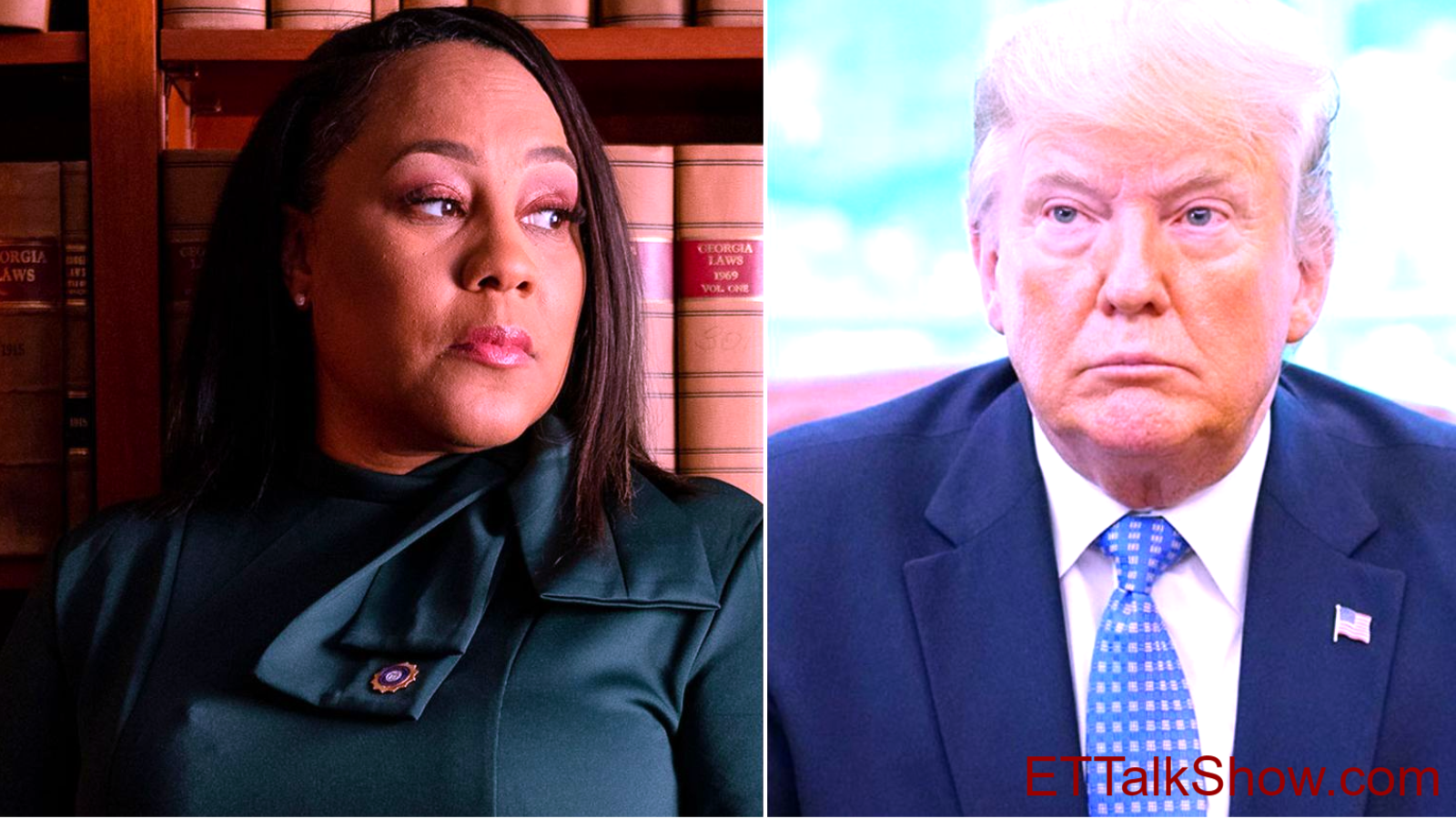In a striking turn of events, the case against former President Donald Trump, spearheaded by Fulton County District Attorney Fani Willis, has encountered a significant setback.
New testimony has emerged that could potentially undermine the prosecution’s position, casting doubt on the solidity of their allegations. This development is particularly noteworthy as it unfolds in a climate where many conservatives view the legal pursuit of Trump as a politically motivated witch hunt rather than an impartial quest for justice.
A former Georgia election official has said there were a series of errors in administering the 2020 election in the state, in what may present a challenge for Fani Willis, who is prosecuting Donald Trump over alleged election interference.
Mark Wingate, who served on the Fulton County Board of Registrations and Elections, gave testimony on Monday during the DC disbarment trial of Trump’s former Department of Justice official Jeffrey Clark.
During that testimony, he was asked why he voted against certifying the 2020 election twice. He claimed there were missing custody documents, no surveillance tapes of drop boxes and a string of other errors.
In his testimony, Wingate said there were more people on the voting roll in Fulton County than there were citizens of voting age. He also said chain of custody documents, which monitor the movement of absentee ballots, were not provided by the department.
“How can I trust as a board member to certify this election when I cannot receive even a sampling, anything at all, with regards to chain of custody document?” he said.
He said he requested surveillance tapes of drop boxes where people posted their ballots but they were not provided.
He said there were a “huge number” of absentee-by-mail ballots and that he was concerned about the functionality of the platform used to verify them.
Fani Willis, who took office in January 2021, has been at the forefront of an investigation into whether Trump and his associates attempted to influence Georgia’s 2020 election results.
Critics argue that Willis’s actions are not rooted in a genuine concern for upholding the law but are instead driven by partisan objectives. They see her focus on Trump as indicative of a broader trend of using the legal system to target political adversaries—a move they claim corrodes public trust and undermines democratic principles.
The recent testimony that has come to light may lend credence to these concerns. While details of this new evidence have not been fully disclosed, its potential impact on Willis’s case cannot be overstated. If it indeed weakens the prosecution’s argument, it would bolster the narrative that the case against Trump lacks substance and is fueled by political animus rather than factual grounds.
Moreover, this isn’t the only challenge Willis faces.
A judge recently granted Trump’s request to appeal a decision allowing Willis to remain on the case despite claims from Trump’s legal team about her alleged bias and conflict of interest. This move keeps Willis under scrutiny and maintains pressure on her office as they continue their investigation amidst growing skepticism.
Superior Court Judge Scott McAfee’s ruling means defense attorneys can ask the Georgia Court of Appeals to review the judge’s decision not to disqualify Willis or dismiss the indictment over her romantic relationship with special prosecutor Nathan Wade. It will be up to the appeals court to decide whether to hear the matter.
The backdrop for this legal drama is fraught with tension and division. The 2020 election remains a flashpoint for controversy, with many conservatives firmly believing that there were irregularities that merit investigation—ironically, an echo of what led to scrutiny of Trump’s own actions regarding Georgia’s election results.
Willis’s pursuit has been characterized by some as emblematic of what they see as an alarming trend: law enforcement officials being swayed by political pressures or personal ambitions. They argue that such behavior threatens to politicize justice and could set dangerous precedents where power—not law—dictates legal outcomes.
This perspective is further reinforced by statements made by individuals like Senator Lindsey Graham who said, “If there’s a prosecution of Donald Trump for mishandling classified information after the Clinton debacle… there’ll be riots in the streets.” Such comments underscore a deep-seated belief among many conservatives that there exists a double standard in how figures from different political spectrums are treated legally.
The implications extend beyond just one case or one individual; they touch upon fundamental questions about fairness and impartiality in America’s judicial system.
For those who hold conservative values dear—values like respect for rule of law and equal treatment under it—the developments in Fani Willis’s case against Donald Trump resonate deeply with broader concerns about maintaining these principles in today’s highly charged political environment.
As this story continues to unfold, observers will be watching closely—not just for its immediate outcome but also for what it signals about the state of American justice and democracy itself.
Will cases like these prove to be motivated by legitimate concerns or will they be seen as vehicles for political retribution? That question remains open-ended as new testimony promises further twists in an already complex narrative.
Sponsors:
Huge Spring Sale Underway On MyPillow Products
Use Promo Code FLS At Checkout
Inflation Buster: Freedom From High-Cost Cell Plans
Freedom From High-Cost Cell Plans Same Phones, Same Numbers, Same Coverage For About Half The Price.
About The Author
Eric Thompson
Eric Thompson is a former US Marine, husband, father, follower of Christ, show host, opinion writer and a good driver based in Oklahoma.




